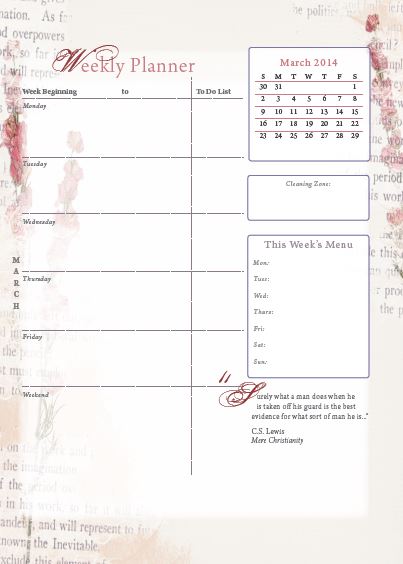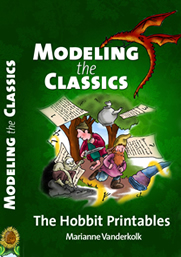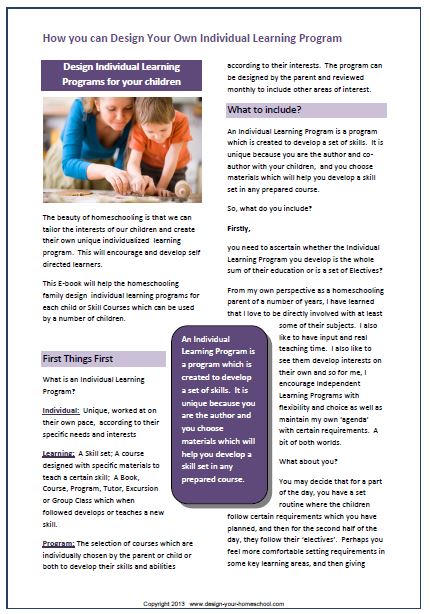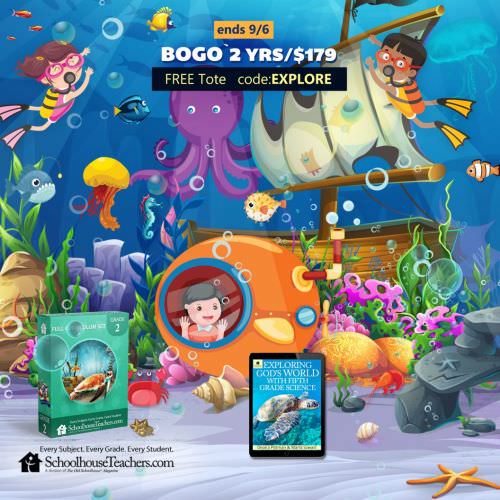Homeschool Science Curriculum - What's important?

What should make up a homeschool science curriculum and how do you design your homeschool science curriculum?
A Home school Science Curriculum is made up of many fields of study, yet, they should be seen as a unified whole, because all has been created by God and for Him. When we teach this subject, we need to understand that God is the author of all and is always to be praised by all of His creation. We can see the complexity of what He has made and also the unity. We can also investigate the systems He has created, the order and regularity, and also recognize our inability to understand all His ways. We must also see man in the position in which God has placed him, and seek to understand how we can fulfill our calling to be in dominion over the creation, without being abusive.
As we teach homeschool science, we will break it into its units and topics, but I believe that as we speak and discuss what we learn, we must remember to continually speak of the God of creation, and help our children to see science, not as a bunch of isolated topics, but as a unified whole telling of the wonders of our great and loving God.
As indicated in the home school science page, we can study science through observation, experimentation, recording findings and information in science notebooks and reading from a variety of science resources.
From this understanding, I will now outline a general view of science and how it can be divided. Using this information you can create your own homeschool science curriculum or take this into account when choosing what you would like to use in your family.
Home School Science - 4 Year cycle from The Well Trained Mind
Jessie Wise and Susan Wise Bauer, who wrote, The Well Trained Mind, divide the Scientific study into a four year cycle, which is repeated three times in the life of the child increasing in difficulty as the children mature.
Their divisions are:
- Life Science (Animals, Human Beings, Plants)
- Earth Science and Astronomy
- Chemistry
- Physics
Christian Classical Home School Science Divisions
Christine Miller from Christian Classical Homeschooling divides the study of Home school Science in this way in the primary school years:
- Year One: Introduction to Natural Science
- Year Two: Plant Kingdom
- Year Three: Animal Kingdom
- Year Four: Earth and Sky
- Year Five: Human Body
- Year Six: History of Science
Joyful Light Education Science Outline
Another home school science overview which I have found to be more detailed was published on the Joyful Light Education website. I have used this with permission.
This author uses the Robinson curriculum, and so she makes mention of specific books in the overview. It is also directed to an American audience. I would add certain books on Australian Animals and Plants.
The Outline covers a range of topics of home school science and these do not need to be covered in order, but can be repeated in further depth through the years. This can be a very helpful guide to design your own homeschool science curriculum.
I think this outline covers every topic that a student may come in contact with in the pre-highschool years. Do not try to cover this in one year! Once everything has been covered once, go back and start the cycle again, replacing the older reports with better ones.
This outline does not need to be studied in order, although some of the basic science is needed to understand parts of the other sections. Some families may want to skip some sections completely until the last two years of high school. This is fine too -- especially if you use the Robinson Curriculum as it is meant to be used. This is just a rough guide of what can be done. It is not meant to be set in stone.
As this is such a comprehensive list, it could easily become the basis of your homeschool science curriculum over many years.
Basic Science
- The Scientific Method
- Creation (for the youngest students)
- Fact vs. Theory and Creation vs. Evolution (When a child is old enough to understand)
- Cells
- Molecules and Atoms (and other basic chemistry if desired)
- Micro world
- Animals vs. Plants
- Animals vs. Humans
Five Senses
- Brain and the Nervous system (needs to be studied first so student can better understand the rest)
- Sight - include color spectrum, lenses, and photography if desired
- Smell
- Hearing - include sound waves
- Touch - include the layers of the skin
- Taste
Body Systems
- Digestive System - include how to eat healthy
- Urinary System
- Circulatory System
- Skeletal System
- Muscular System - include the benefits of exercise
- Respiratory System
- Lymphatic System - include viruses, germs and bacteria
- Reproductive System - if student is mature enough to handle
- Hormonal System - if student is mature enough to handle
Mammals
(For the Robinson Curriculum the Bailey books can be used here, with some extra reading as needed.)
- Pets and Farm Animals
- Animals of North America - an excellent source for this section is: "The Burgess Animal Book for Children"
Warning: This book contains references to Mother Nature, and how she is the one who made each animal the way that they are. Also contains references to how humans are bad when they hunt animals. This may be a problem to some families. I still plan to use these books with my children -- the information about what you can learn about the animals is very good and detailed. I will carefully discuss the questionable parts with my children OR, I will edit the books to take out all references to Mother Nature. - Animals of the North and South Pole
- Animals of Other Countries
Birds
( For the Robinson Curriculum the Bailey books can be used here, with some extra reading as needed.)
- How Birds Fly and their Anatomy
- Birds of North America - an excellent source for this section is: "The Burgess Bird Book for Children"
Warning: This book also contains references to Mother Nature, but not as prevalent as "The Burgess Animal Book" - Birds from Other Countries
Other Animals
- Fish
- Reptiles
- Amphibians
- Insects
- Invertebrates
Plants
- Flowers
- Weeds
- Trees
- Flower less plants: ferns, fungi, coral, moss, mold and bacteria
Space and Sky
- The Solar System - Check out this Tour of the Galaxy Video
- Seasons
- Earth's Atmosphere
- Water Cycle - include evaporation, condensation, and precipitation
- Weather - include acid rain if desired
- Solids, Gas, Liquids - include how water can change into each form (The fourth state of matter video?)
- Climates of the World
Earth and Water
- Oxygen and Nitrogen Cycles
- Soil - include caves, and tunnels
- Earth Layers - core, mantle, crust
- Volcanos - Volcano Science project here.
- Earthquakes
- Rocks and Minerals - Making Crystals Experiments
- Fossils
- Oceans and Tides
Basic Physics
- Simple Machines (like pulleys and levers) Try some cool science experiments on machines here.
- Force and Motion - Rollercoaster physics - great experiments here.
- Gravity and Flight
- Floatation
- Electricity and Circuits
- Magnets
Famous Scientists
- File reports about Scientists in chronological order, or in alphabetical order by last name -- your choice.
Most of these science topics can easily be studied with the wonderful homeschool science resources below and used to design your own homeschool science curriculum.
Home school science recommendations
I highly recommend these homeschool science resources which could be used as homeschool science curriculum for elementary and middle school. They are extremely well written and beautifully presented and will definitely engage the reader and fills them with awe for the Creator. My favourite Science Resource for Years 1-6.
Exploring Creation Series
Exploring Creation Series notebooks
Apologia homeschool science curriculum
Devotional Biology curriculum

This wonderful homeschool science curriculum enables students to learn high school Biology from one of the top creation scientists. Dr. Kurt Wise. This class has been designed to fully integrate a Christian worldview with the biological sciences. The result is a completely new way to approach biology. He has taught this class for over a decade to high school and college students, and is now making it available for the first time in video format.
The class includes video lectures, textbook (PDF), lab manual (pdf) and lab instructional videos. Click the image below for further dates and streaming information.
Where to from here?
How do I teach Home school Science to my children? In concrete terms, how do I go about this task and how do I design our homeschool science curriculum?
Let me help you..
- Find out how to teach homeschool science
- Try some Easy Science Experiments
- Choose excellent homeschool science resources
- Home ›
- Home school Science ›
- Homeschool Science Curriculum










